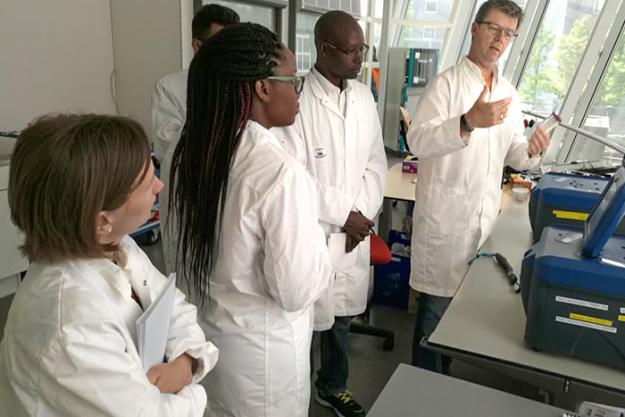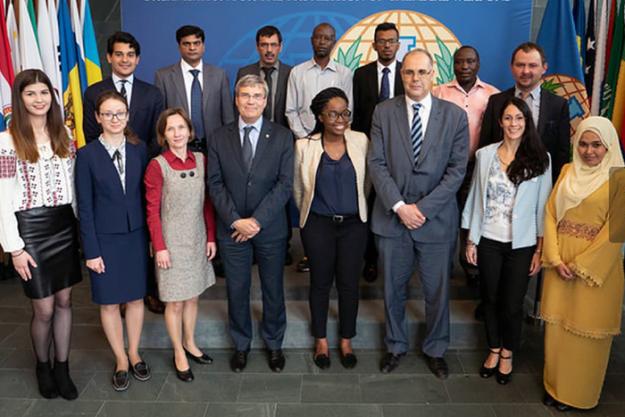
Participants at an OPCW course on analytical methods employed by customs laboratories to support national border controls of scheduled chemicals
THE HAGUE, Netherlands – 7 June 2018 – Chemistry professionals expanded their knowledge about analytical methods employed by customs laboratories to support national border controls of scheduled chemicals, at a course by the Organisation for the Prohibition of Chemical Weapons (OPCW), held at the OPCW Laboratory in Rijswijk, Netherlands, from 28 May to 1 June.
The international group of lab professionals–who represented nine OPCW Member States from across four continents–came from the facilities that collaborate with their national customs services in controlling the transfer of scheduled chemicals across state borders.
The participants studied the provisions of the Chemical Weapons Convention (CWC), particularly those relating to OPCW’s verification of Member States’ declarations of chemicals scheduled in the Convention.
The course covered various analytical methods to determine structure and concentration levels of scheduled chemicals.

The participants at the OPCW
The participants further visited the Customs Laboratories in Amsterdam to explore the best Dutch practices in chemical analysis relevant to border control.
At the end of the training, the attendees identified a set of good laboratory practices for the implementation of international transfer regime established by the CWC.
The participants represented the following OPCW Member States: Argentina, Belarus, Burundi, Guyana, Kenya, Morocco, Pakistan, Serbia, and Sri Lanka.
Background
This course was part of OPCW’s activities to implement the Components of an Agreed Framework for the Full Implementation of Article XI, established by the decision of the Conference of States Parties in 2011 (C-16/DEC.10 dated 1 December 2011).
As the implementing body for the Chemical Weapons Convention, the OPCW oversees the global endeavour to permanently and verifiably eliminate chemical weapons. Since the Convention’s entry into force in 1997 – and with its 192 States Parties – it is the most successful disarmament treaty eliminating an entire class of weapons of mass destruction.
96% of all chemical weapon stockpiles declared by possessor States have been destroyed under OPCW verification. For its extensive efforts in eliminating chemical weapons, the OPCW received the 2013 Nobel Peace Prize.
